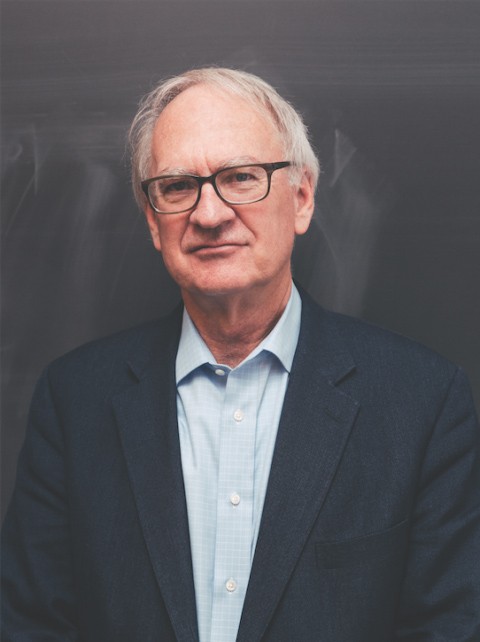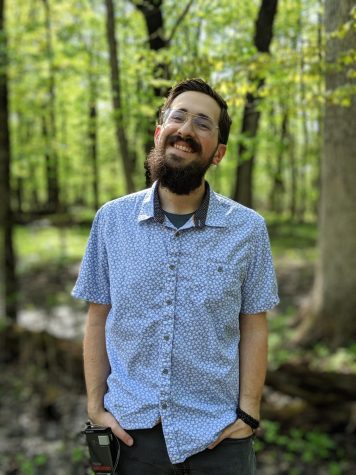Great Lakes History Conference discusses history through gaming

Courtesy / Oxford University Press
Oct 15, 2018
The Great Lakes History Conference, Grand Valley State’s annual conference discussing themes in history education and research, gained a competitive edge this year with its new theme: “Playing with History.” The conference, which took place Oct. 12 and 13, focused on gaming and competition as a means to improve upon history education within the classroom.
Co-coordinated by History Professors David Eaton and Michael Huner, the event encompassed two full days of panels, discussions, ceremonies and activities. Eaton said the conference serves a variety of different purposes, but the goal brought to the forefront involves focusing on classroom interaction.
“We really want to use (the conference) as an opportunity to explore certain themes we feel represent a nexus point between teaching and research,” Eaton said. “As professors, part of our job is to write articles, investigate events, interpret evidence, but we like to use this conference as an opportunity to interact with the teaching side of our jobs as well.”
With a focus on “innovative pedagogies,” Eaton said that gaming naturally plays a unique role in blending research and education. Because of the role games play in the public perception of the past, Eaton said history educators are looking toward games to see how history is broadly being consumed.
“Part of the reason that we’re more interested in (gaming) is that there’s been more interest recently in trying to understand the way that our students understand the past, the way that the public understands the past,” Eaton said. “(For example) if we’re not talking about college students, where do people encounter French Revolution history? A good chunk of people are going to mention Assassin’s Creed.”
Gaming also serves as an educational tool in many cases, both for gamers and educators. Eaton said that a variety of popular games can be used in academic circles to discuss complex historical scenarios and possibilities, as well as decisions to balance engaging gameplay and accuracy.
“Those discussions about the degree of historical accuracy versus the degree of contingency — the degree of different paths that could have been followed — to me is a fascinating discussion,” Eaton said. “For me, it shapes the way that students and members of the public understand the past. We as academics should try and understand that as well when we present what we do and when we choose research topics.”
Eaton said he was particularly excited for game developers from Paradox Development Studio to give their presentation on Saturday morning. Paradox is particularly popular for games such as Europa Universalis IV, which Eaton said strikes a pivotal balance between pre-programed historical accuracy and freedom to toy with different historical decisions.
“(Europa Universalis IV) is meant to recreate everything,” Eaton said. “So if you want to play as Ming China but instead of drawing back after they sent out their charger fleets, you just keep sending fleets out, explorers out. If you want to do that, you can do that and that’s going to change everything else. This game, through its mechanics, gives at least one plausible idea of what would have happened if someone made this different choice at this moment.”
Another interest Eaton had in Paradox’s visit revolved around their design of their upcoming title “Imperator: Rome” in which the developers coded in female generals, much to the disagreement of fans. Because of the role games play in historical characterization, Eaton said the conversations surrounding the historical accuracy of having female generals and the immersion of gameplay is fascinating.
“If (the critics) win that fight and those women get baked out of that code, then people for generations after are going to get this image of the past that doesn’t include those women,” Eaton said.
The focus on gaming represents a change in how history is being taught in the classroom. That change is moving away from fact memorization and inching toward interpretation and having a historian’s mindset.
“Part of the big shift for historians is that we just don’t necessarily need to focus on memorization anymore, on facts the way we had to in the past,” Eaton said. “What we’re trying to do is begin to explore some of the procedural elements of being a historian: how do you think about things, how do you decide what matters in all of these past events, how do we decide what to prioritize and what to put in the foreground and what things are less important?”
As has been the goal of the conference for the past 43 years, Eaton hopes that the various panels and activities provided participants with a more interpretive view of historical education.
“History is alive,” Eaton said. “It’s something that is very present in today’s world, in day to day life and in the way we understand that world. My hope is that the conference gets people thinking a little bit harder about the ways that we recreate the past, gets us thinking harder about how we reach out to the public, but also how to do that in a sensitive and ethical way.”


























